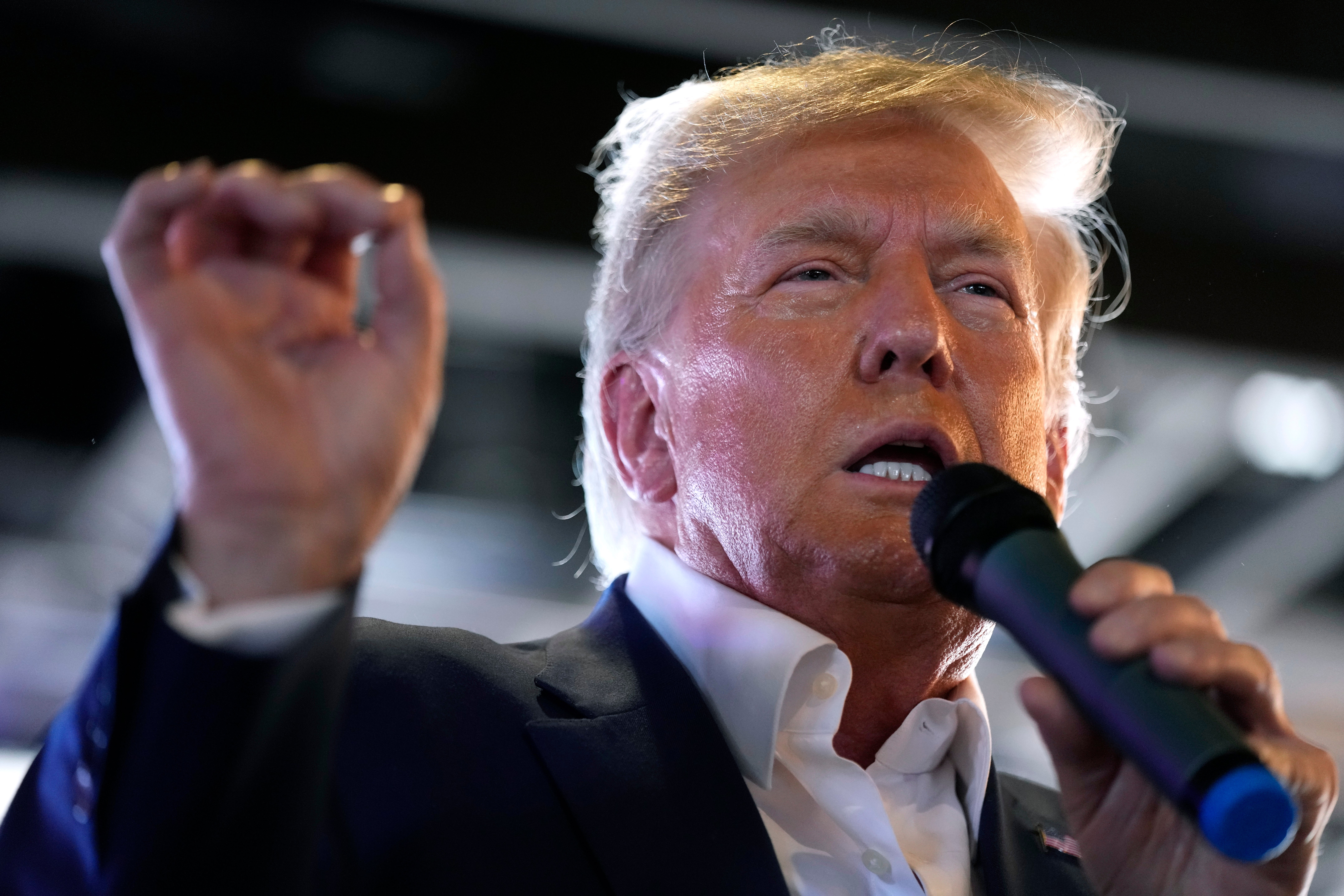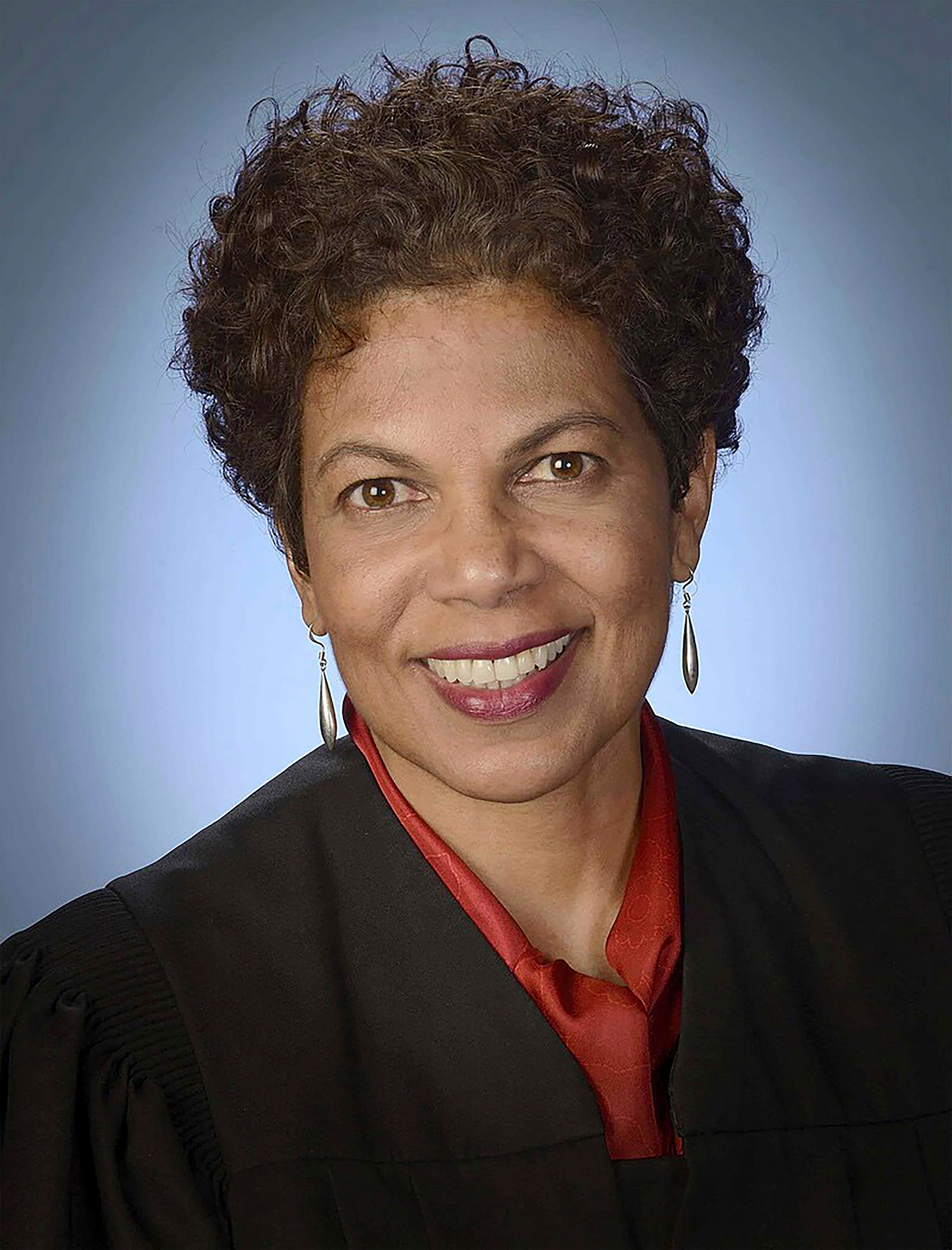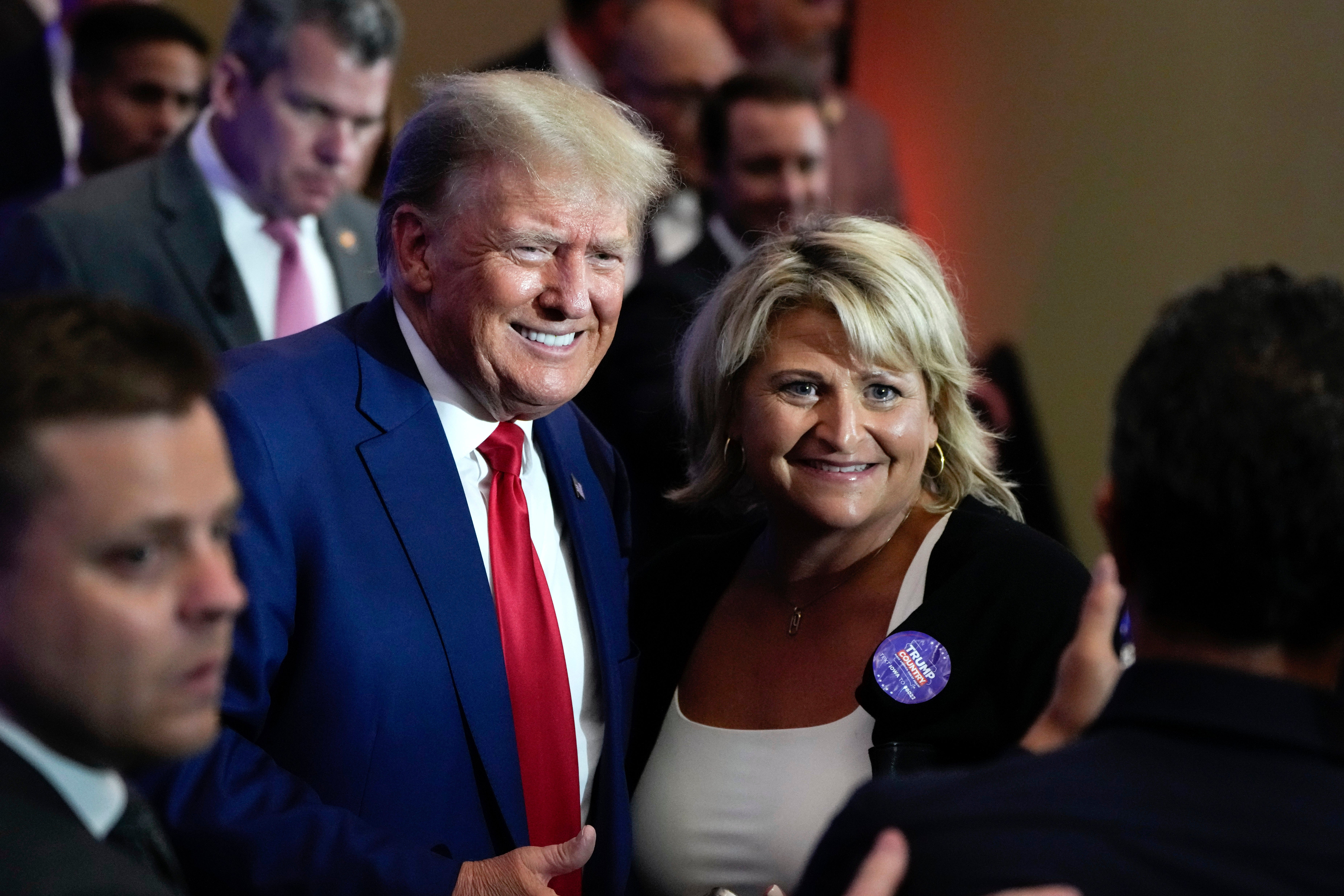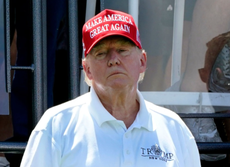Trump attacks on judges are ‘crossing the line’. Will he be punished?
The former president’s behaviour would pose serious legal perils for a normal defendant – but Donald Trump is no normal defendant. Josh Marcus reports


Your support helps us to tell the story
From reproductive rights to climate change to Big Tech, The Independent is on the ground when the story is developing. Whether it's investigating the financials of Elon Musk's pro-Trump PAC or producing our latest documentary, 'The A Word', which shines a light on the American women fighting for reproductive rights, we know how important it is to parse out the facts from the messaging.
At such a critical moment in US history, we need reporters on the ground. Your donation allows us to keep sending journalists to speak to both sides of the story.
The Independent is trusted by Americans across the entire political spectrum. And unlike many other quality news outlets, we choose not to lock Americans out of our reporting and analysis with paywalls. We believe quality journalism should be available to everyone, paid for by those who can afford it.
Your support makes all the difference.In a normal criminal case, the defendant doesn’t talk to the public or openly speak about the proceedings at all. If anyone says anything public-facing, it’s the lawyer. In a normal criminal case, the defendant certainly wouldn’t appear to be trying to publicly threaten or influence the lawyers, witnesses, prosecutors, and judges at the heart of a case. And in a normal criminal case, if a defendant took the extremely ill-advised step of making such a threat, they could face jail time for contempt of court or even worse, additional criminal charges.
But Donald Trump, who is facing four serious criminal indictments across courts in four states, and seems to lash out at those involved in these prosecutions on a near-daily basis, is not a normal defendant, and he’s certainly not facing ordinary charges.
Instead, according to legal experts, the former president, and his penchant for pushing the envelope in public, is totally unique, and Mr Trump might be getting away with conduct that would land others in prison.
“The line between what former president Trump has been doing through the media, social media, the line between witness intimidation of witness tampering on the one hand and freedom of speech on the other, he is certainly coming close to the line, if not crossing the line into improper behaviour,” Ohio State University professor Joshua Dressler, a criminal procedure expert, told The Independent.
“A lawyer for him would say to him, shut your mouth,” he added. “That’s what a lawyer would want him to do. From what one reads about him in books and so on, he doesn’t listen to the advice of others. He acts on his impulses.”
That would certainly seem to be the case recently.
After Mr Trump was indicted in Washington this month for allegedly conspiring to overturn the 2020 election results, he wrote on social media, “IF YOU GO AFTER ME, I’M COMING AFTER YOU!” He reposted a large image of overseeing Judge Tanya Chutkan falsely claiming the official had “openly admitted she’s running election interference against Trump,” then wrote a post of his own calling the Obama appointee “VERY BIASED & UNFAIR.”
Facing a separate indictment in Georgia this week on 2020-related conspiracy charges, Mr Trump openly warned a grand jury witness, former lieutenant governor Geoff Duncan, he “shouldn’t” testify, and has called prosecutor Fani Willis “out of control and very corrupt.”
It’s a familiar tactic for Mr Trump.
After being indicted in June in Washington, he branded Justice Department special counsel Jack Smith a “Trump hater” and “a deranged ‘psycho.’”
Facing charges in New York related to a hush money scheme during the 2016 election, Mr Trump called Manhattan District Attorney Alvin Bragg an “animal” and a “criminal,” and once posted a photo on Truth Social holding a baseball bat next to a photo of Alvin Bragg’s head.
Mr Trump’s guns-blazing style has earned him warnings from judges and criticism from legal experts.
Last week, Judge Chutkan warned Mr Trump about making “inflammatory statements” that would violate the conditions of his release, despite protests from his lawyers that his statements online are merely a political expression and not specific threats.
“Mr. Trump, like every American, has the First Amendment right to free speech, but that right is not absolute,” she said.
“The fact that he’s running a political campaign currently has to yield to the orderly administration of justice,” she added. “And if that means that he can’t say exactly what he wants to say about people who may be witnesses in this case, that’s how it’s going to have to be.”
University of Michigan law professor and former US Attorney Barbara McQuade wrote in a post on X, the social media platform previously known as Twitter, that the former president’s comments about witnesses in the Georgia investigation “witness tampering in real time.

Meanwhile, J Michael Luttig, a former federal appeals court judge, told CNN on Thursday that Mr Trump’s attacks on the federal legal system are “inexcusable.”
“The former president’s comments and attacks on the federal judiciary and on the specific individual judges who will preside over his trials are unprecedented in American history,” he said, adding, “And they imperil the former president himself in the defence of his actions on January 6th before the juries that will hear his case.”
However, Mr Trump may not face any consequences for his habitual line-stepping, according to observers.
“I wouldn’t expect any prosecution,” Ohio State’s Professor Dressler said. “Not because I believe he hasn’t crossed the line. He’s certainly very close to the line at a minimum, but simply that if nothing else there’s so many other facets going on, so many things happening, they don’t want to add it to the list.”
Bringing a separate criminal charge for witness tampering or threatening an official would require proving an explicit attempt to make a threat, whereas Mr Trump has argued his online outbursts are political commentary.
“With President Trump, because of the campaign and I would say because of his personality, it’s impossible for him not to speak out on the issues. So it does present unique circumstances,” one of his lawyers, John Lauro said on a recent podcast. “My approach as a lawyer is obviously very different than his as a candidate. But he feels strongly that he needs to speak out. And he also in particular looks at this prosecution as a political prosecution. So as a result I think in his mind it’s sort of fair game from a political perspective to make these comments.”
There’s also the matter of logistics. Whereas a normal defendant violating court orders and speaking about the case improperly could face pre-trial detention in a jail, Mr Trump is a former president with a Secret Service detail and unique security needs.

He may be getting a mugshot just like everyone in Georgia, but it would be an unprecedented event for him to go to jail.
There are some cases of high-profile figures facing consequences for their actions during criminal prosecutions.
Last week, FTX founder Sam Bankman-Fried had his bail revoked for allegedly trying to tamper with witnesses ahead of his upcoming fraud trial.
US District Judge Lewis Kaplain found probable cause that the former cryptocurrency billionaire harassed his former girlfriend, FTX executive Carline Ellison, by sharing her private journals with The New York Times. The entrepreneur was under court order restricting his internet and phone use, but allegedly continued speaking with journalists and contacted the general counsel for FTX.
Prosecutors argued Mr Bankman-Fried sharing the journals was a “means of indirect witness intimidation through the press.”
His lawyers have appealed.
The 31-year-old was previously under house arrest on $250m with his parents in California.
Even if Mr Trump did listen to prevailing lawyer wisdom and refrain from the non-stop verbal assault on his legal counterparts, the former president’s looming public persona still presents a host of problems, including jury selection.
The ideal juror is open-minded and fair, without excessive awareness or opinion on the person and alleged crimes at hand. Good luck finding that after decades of the Donald Trump show.
“Without the kinds of statements he’s making, I think it is going to be a nightmare for the courts, the judge, to be able to find twelve jurors who can hear the case with an open mind and be fair-minded and make the decision solely on the basis of the evidence at the trial,” Professor Dressler said.
“Forget what Trump has said,” he continued. “All you have to do is read the newspaper…You’re getting all kinds of information which hasn’t yet been introduced at trial. That’s going to make it very hard.”
The ideal juror in this case, he said, is someone who has “been living in a cave.”
However, such a person is hard to find in Trump’s America.
As Mr Trump’s formerly lawyer Ty Cobb recently said, it’s hard to hide from the former president.
“He’s at war perpetually — 24/7,” he said.
And because of Mr Trump’s unique position facing an unprecedented set of prosecutions, it’s a conflict unlikely to end any time soon.



Join our commenting forum
Join thought-provoking conversations, follow other Independent readers and see their replies
Comments